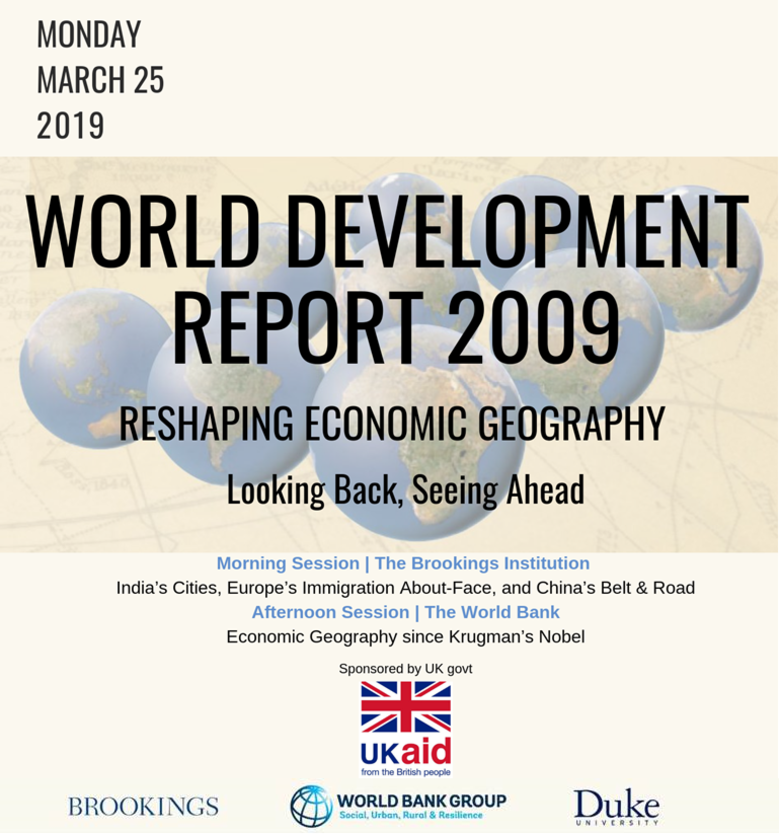December 2008 may well have been the worst time for the World Bank to launch a report on economic geography. It was difficult to get people to reflect on long-term transformations when the global financial crisis was at its most frightening. In many ways, 2019 may be the best year to talk about economic geography, and celebrate the tenth anniversary of the 2009 World Development Report. There is no smoldering crisis, but global economic geography is changing in ways both quick and quirky. Perhaps the most worrying change is that the convergence of the 2000s has gone into reverse: since 2008, the share of the world’s economies that are converging to the per capita income of the United States has fallen from nearly 90 percent to less than 50. Trade is in retreat, and international flows of capital have dropped to a fraction of they were a decade ago. At the same time, new technologies promise—or threaten—to radically change the shape and size of cities, regions, and international trade.
These changes are manifest in worrisome developments. In India and Africa, cities are getting clogged with people as urbanization gathers speed. In Europe and the United States, migrants are getting an increasingly hostile reception. In East and Central Asia, China is suddenly cementing trade and investment relations with its neighbors, coaxing them into adopting a “Chinese model” of development, and making others jittery.
Reshaping Economic Geography pointed to agglomeration, migration and specialization as the forces that carved out the pathways to prosperity for people everywhere. Now it is time to see whether the last decade has validated the WDR’s messages, or exposed flaws in its framework. This retrospective consists of three regional inquiries: the reasons for the troubling state of India’s cities, the economic geography of the seemingly sudden change in attitudes to immigration in the European Union, and why China’s Belt and Road Initiative is generating at least as much discomfort as development.
But that is not our only objective. Today, there are two competing models for reshaping economic geography: the Western way that puts institutions first and infrastructure second (“institutions for the ages with infrastructure that is good enough”) and the Chinese approach that changes the order (“infrastructure for the ages with good enough institutions”). It is worthwhile to assess their relative merits.
We plan also to look ahead, and investigate whether the promise of new informational, transactional, and operational technologies like the internet of things, digital platforms, and robots ought to make us think differently about the dimensions of development—density, distance, and division—during the next decade.
Join a team of development professionals from the World Bank, UK Department for International Development, and the Brookings Institution, and academics from universities in the US and Europe in this exciting project:
- At the Brookings Institution on Monday March 25 2019, between 10:00 and 11:30 am, for India’s Cities, Europe’s Immigration About-Face, and China’s Belt & Road, a panel discussion of three of the biggest changes in economic geography during the last decade.
- At the World Bank, on March 25 2019, between 12:30 and 5:30 pm, for Economic Geography since Krugman’s Nobel, to talk with the team as it initiates the work on papers commissioned for the project.
- On our website www.worldbank.org/WDR2009+10 starting Monday March 4 2019, for regular updates and the completed papers.
